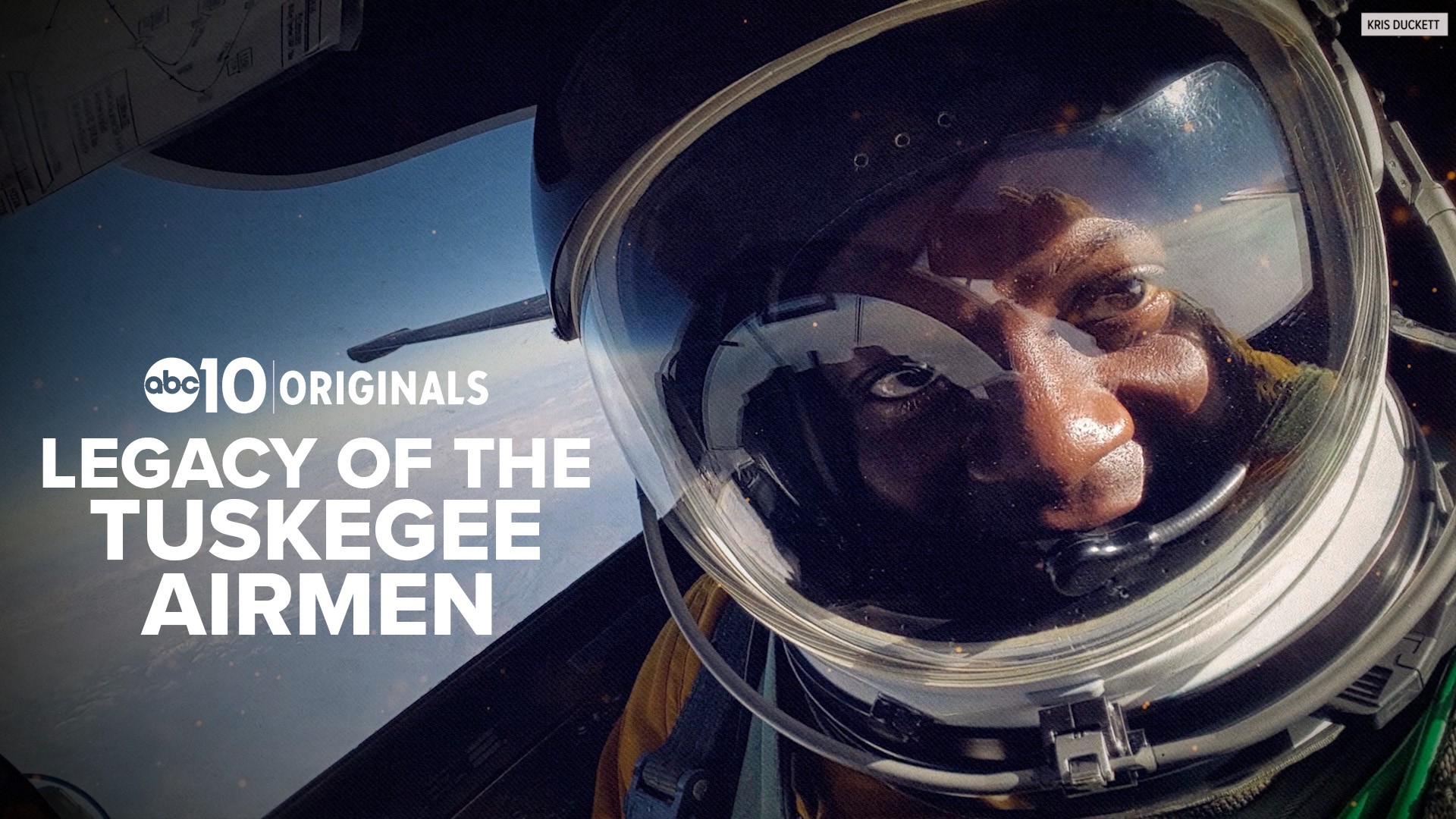SACRAMENTO, Calif. — Historically, people who look like Airforce veteran Major Kris Duckett don’t sit in the cockpit or own a plane like he does. Historically, people who look like Duckett don’t pilot military planes or fly commercial passenger jets like he has, and historically, people who look like Duckett don’t get introduced to aviation at a young age.
“If I would have known about the Tuskegee Airmen when I was 10, 12 years old and started learning about flying, I most definitely would have been flying sooner,” Duckett said.
Duckett is a member of the California Red Tails, a chapter of the Black Pilots of America, which is a group trying to change historic norms by telling the story of America’s first African American military pilots, the Tuskegee Airmen.
Near the height of WW2, a lack of manpower became a serious concern on the American war front, and that’s when Congress approved an experiment. “There were a lot of studies done, and this was an actual experiment to see if Black Americans were capable to run complicated machinery and war planes,” says Duckett.
RELATED: ‘That story needs to be told’ | Black Sacramento family on a mission to reclaim land in Coloma
During a time of deep racism and segregation in the U.S., the military built an airfield near Alabama’s Tuskegee Institute, a historically Black school of higher education founded by Booker T. Washington. It was here that the first class of African American airmen would be trained in all realms of aviation.
“You couldn’t be a B student. You had to be an A+ student. You had to be, or you wouldn’t make it because you were being looked at that closely,” Duckett said.
The Tuskegee Airmen would eventually call themselves Red Tails, and by the end of the experiment, hundreds of them proved they could not only fly but fly well. However, that didn’t change the minds of the Army or Congress. The Red Tail’s remained grounded until a powerful woman stepped in.
“President Roosevelt’s wife, Elenore Roosevelt, went down Tuskegee and flies with a man named Chief Anderson,” Duckett said.
Once a picture of the First Lady and a Black airman started circulating, the Army had no choice but to put the men into action.
“Those combat missions were not exactly dog fighting,” Duckett said.
Doubt and discrimination followed the Red Tails for many months. In the beginning, Black pilots were integrated at White airbases. They were sent on menial missions in inferior planes. Respect for the Red Tails didn’t come until they were given the opportunity to protect bomber planes.
“There were a lot of stories and lots of successes of what they did,” Duckett said.
Those successes led the military to giving the Red Tails their own unit.
Unfortunately, the Tuskegee Airmen program did not last long. Following the end of WWII, the Red Tails reintegrated into the newly formed Air Force, and the Black pilots who left the military had a difficult time getting civilian jobs in aviation.
The Tuskegee Airmen experiment was a success, but Duckett says their story is rarely taught in school.
“There are so many kids who don’t know that aviation is an option,” Duckett said.
That’s why the Black Pilots of America tour the nation to teach students about the legacy of the Red Tails.
“With a group like ours, a lot of members will say, 'Hey, hop in. I got a seat if you just want to go up and fly.' We are more than willing,” Duckett said.
The California Red Tails are based at a number of airports across California. If you are interested in getting involved with the group send them a message on their contact page.
WATCH ALSO:

















